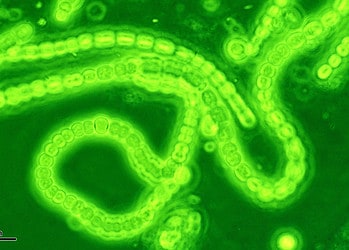From the common cold to pneumonia and potentially life threatening lung diseases: a single protein was found to play a key role. Now, an international team of researchers has finally zeroed in it.

The key protein is called MUC5B – it is one of the two proteins found in the mucus that normally and helpfully coats airway surfaces in the nose and lung. Both of them are sugar-rich, and both of them have a similar molecular structure. The other one is MUA5C.
“We knew these two proteins are associated with diseases in which the body produces too much mucus, such as cystic fibrosis, asthma, pulmonary fibrosis and COPD,” said researcher Chris Evans, PhD, an associate professor in the University of Colorado School of Medicine. “We also knew that many patients with asthma or COPD have as much as 95 percent less MUC5B in their lungs than healthy individuals, so we wanted to see if one of these is the bad player in chronic lung diseases.”
The researchers compared mice with both these proteins with mice who lacked one or the other. The ones that lacked MUC5AC were fine, but the one without MUC5B constantly got sick. Their immune systems were also much more vulnerable, especially to the MRSA “superbug,” a major source of infections in hospitals and even in day to day situations.
This has very important implications for people with runny noses – what this means is that getting rid of the mucus, as good as that may make you feel, may do more harm than good.
“Getting rid of your mucus may make you more comfortable and may help patients with chronic lung diseases,” Evans said. “But if you block it too effectively, this actually could be harmful in the long run. If a treatment gets rid of MUC5B, it may make people more vulnerable to additional infections.”
Interestingly enough, the MUC5B protein is encoded in a part of the human genome which shows great variability. For example, every 1 in 5 people have a mutation that causes them to produce 30 times more protein than usual. It’s still not clear what the effects of too much MUC5B are.
“Knowing the key role of MUC5B allows us now to focus on how the protein works and, we hope, to find ways to help patients with these diseases,” Evans said.
Via University of Colorado Denver.






